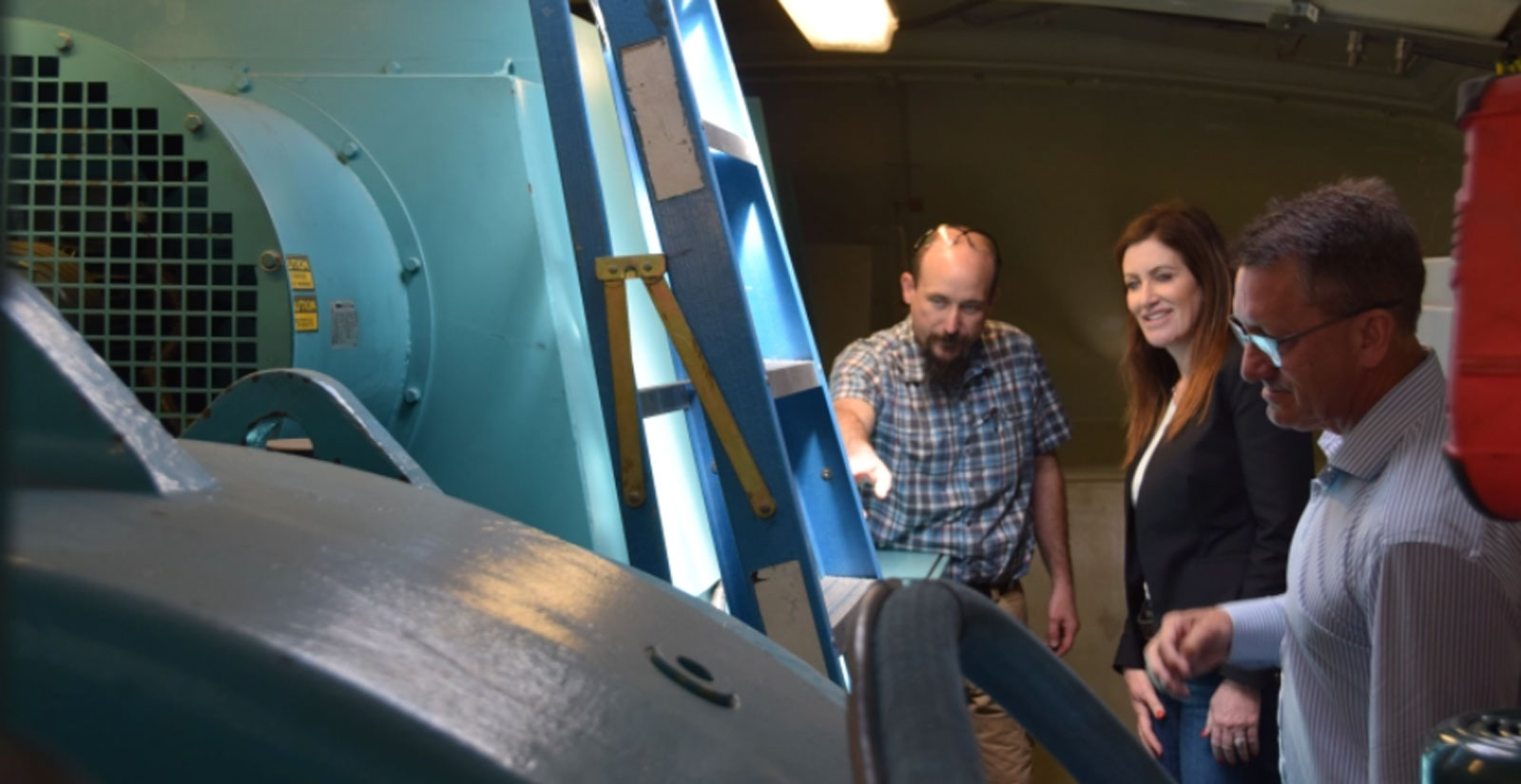The wind tech program at Northeastern Junior College hopes to double in size in the next few years.
That’s one of the messages Heidi Ganahl, a Republican candidate for governor, heard Thursday during a visit to NJC’s Applied Technology Campus.
Ganahl toured the wind tech facility, hearing about the kind of hands-on projects students complete to equip them for a career not just in wind energy, but in a variety of fields based on their work in electronics, mechanics and hydraulics, according to program faculty.
“It’s a strong, project-based program,” said Jason Hazlett, department chair and one of the instructors.
There are hundreds of jobs in wind technology available around the country, he said, although some students choose other fields because they’d prefer to stay closer to home. Being a wind technician can require travel to job sites for a month or longer.
Ganahl’s visit included a look inside the program’s model nacelle, which houses the gear box, generator and other equipment at the top of a wind turbine. The nacelle was built by students in the program using parts and equipment donated by various wind energy companies. Hazlett explained the various components and the tasks a technician might need to perform inside hub, as well as the maintenance and repairs that would require a worker to climb on top of the nacelle and access the hub where the turbine’s blades are attached.
The program is very dependent on donations, which have come in the form of funding as well as materials and equipment. In recent years, NextEra has provided donations to help the program to also expand into solar technology. Hazlett said they aren’t quite to that point yet – the COVID-19 pandemic has delayed progress – but those courses are coming soon. He noted that new wind developments are frequently paired with solar, which means the job will likely be diversified in the future.
During the tour, Ganahl also got a look at the program’s trailer that is used as a mobile workshop to conduct one- to two-day workshops at rural high schools. While those students may not be able to easily travel to NJC’s campus, the trailer allows the instructors to bring the program to the students and show them some possibilities.
The trailer will also serve as a recruitment tool, with plans to take it to fairs and other events around the region, said instructor Jason Winter. He noted that they’ll be able to show videos showcasing what the program has to offer for event visitors.
The group also briefly visited the diesel tech shop on the other side of the ATC, with President Michael White noting that program has also received donations of trucks and equipment from local individuals and businesses that allow the students to have hands-on experience. They are working to get electric and hybrid vehicles for the students to work on.
White said the college is waiting to hear about some grant funding that will allow it to follow through on plans to expand the facilities at the ATC, which will provide more space for existing programs as well as the addition of new programs.
Ganahl, who currently serves as a regent at the University of Colorado, said she thinks it is important for high school students to be aware of the opportunities programs like those at NJC provide. She feels too often the message is that students need to pursue a four-year degree, and that isn’t the right fit for everyone, she said.
White said that within NJC’s service area, the program is highly visible, with activities like FFA conferences bringing hundreds of students to campus where they tour the facilities. But he agreed that more could be done to raise awareness in other parts of the state as well as outside of Colorado.
About half of the students in the ATC programs come from outside NJC’s service area, Hazlett said.


